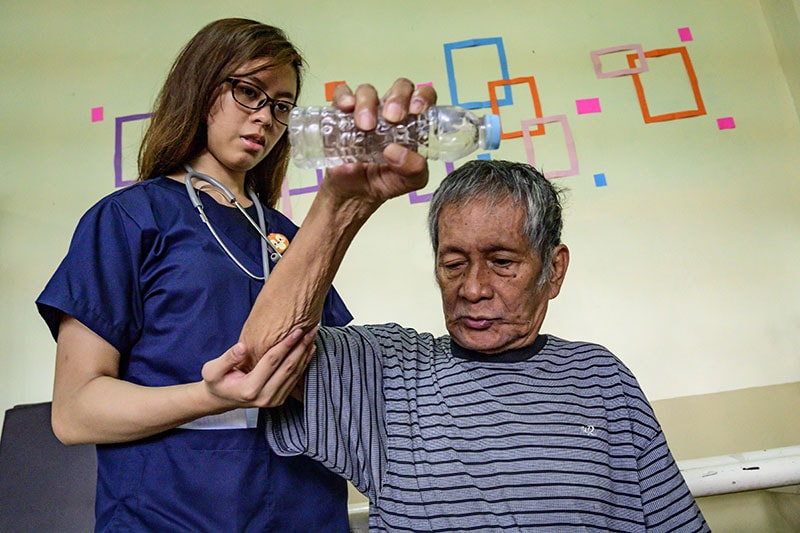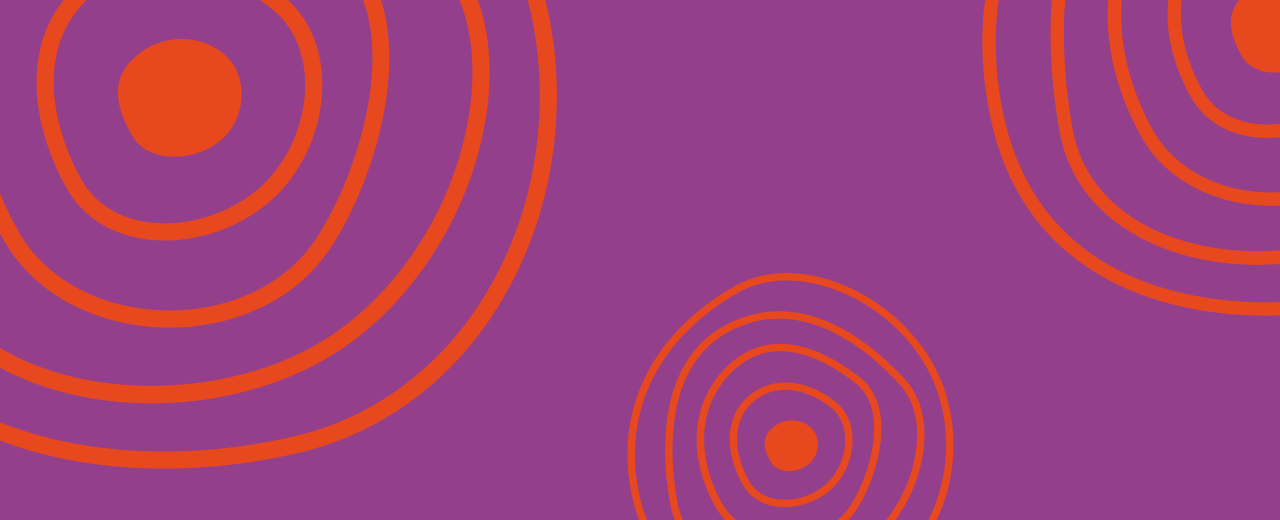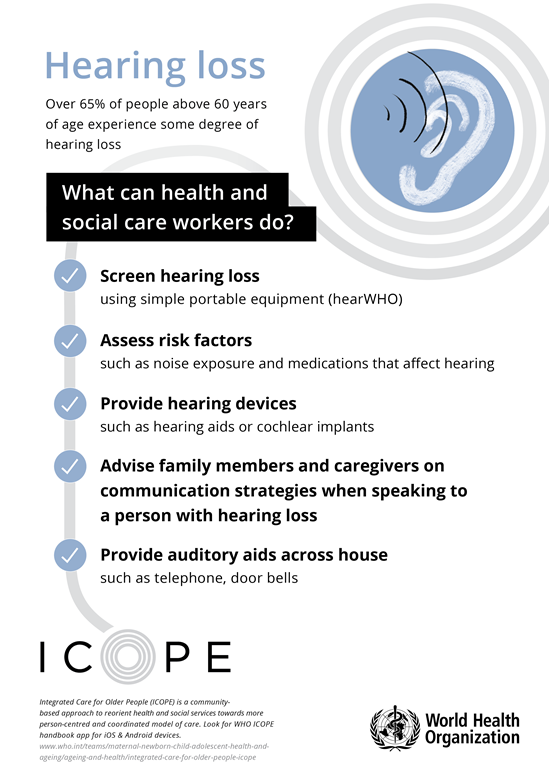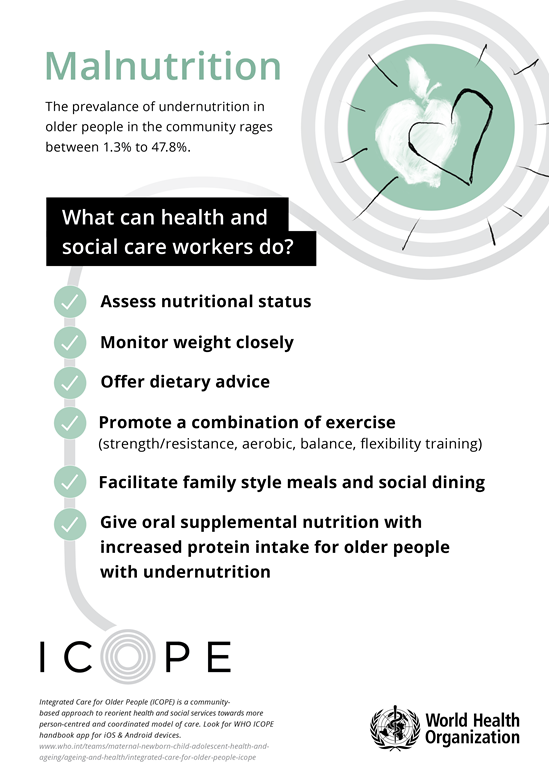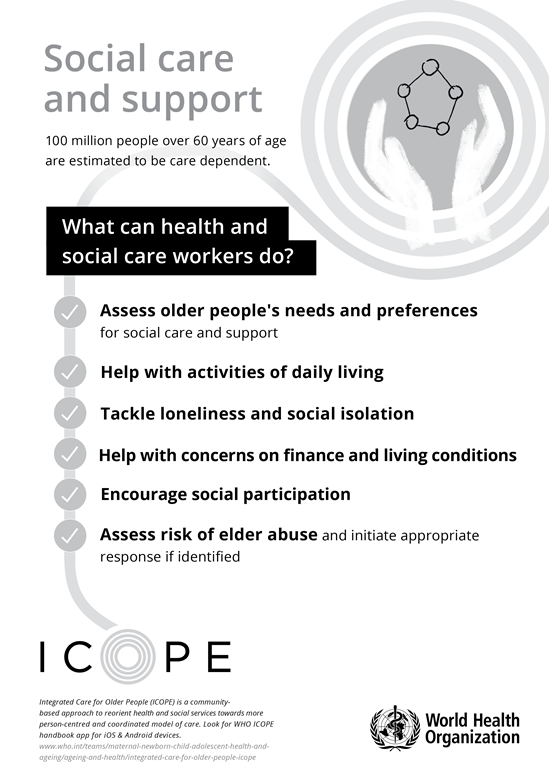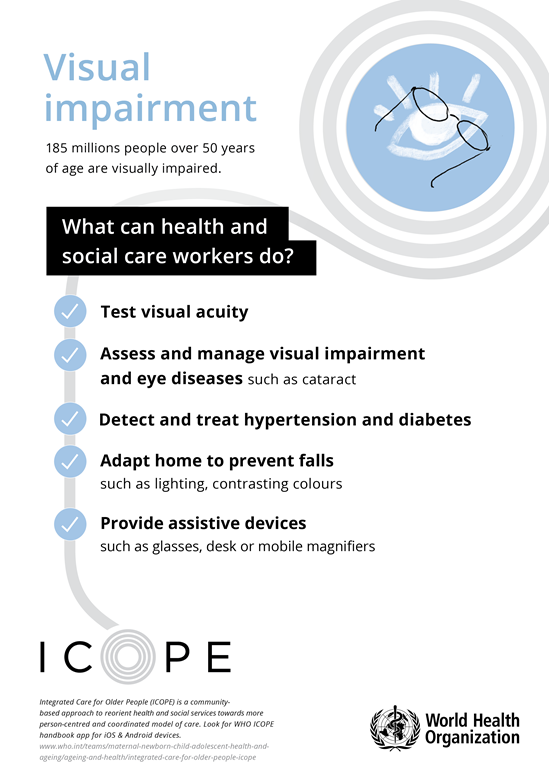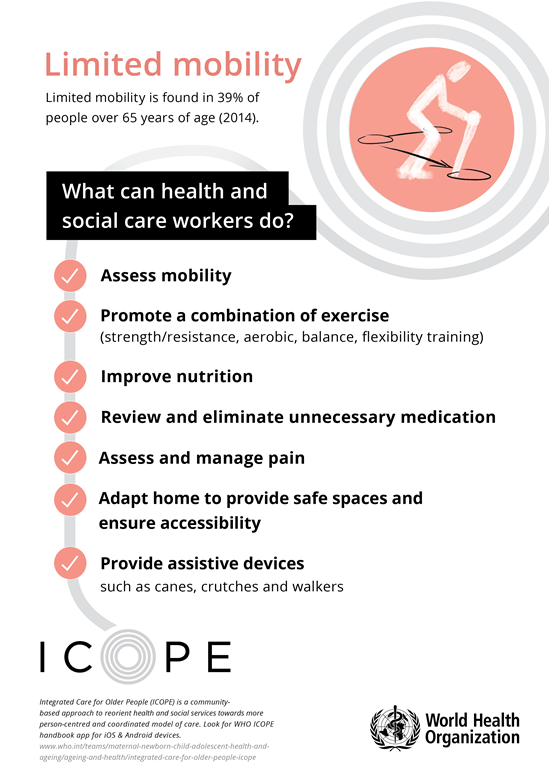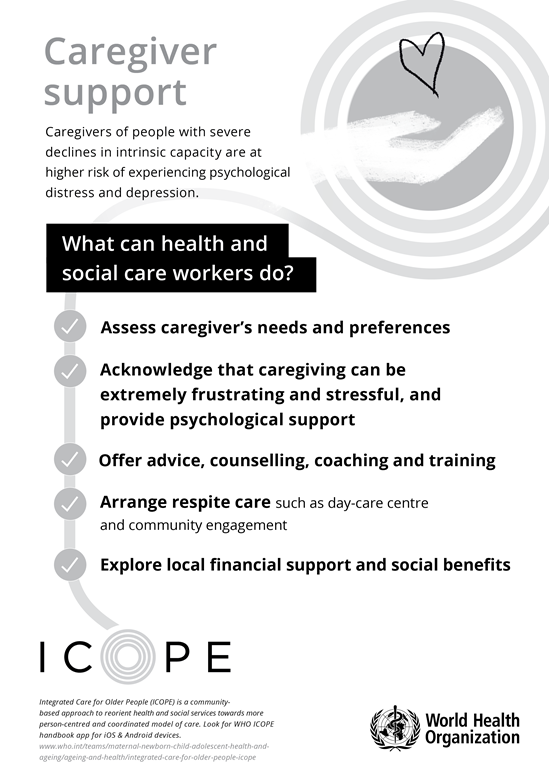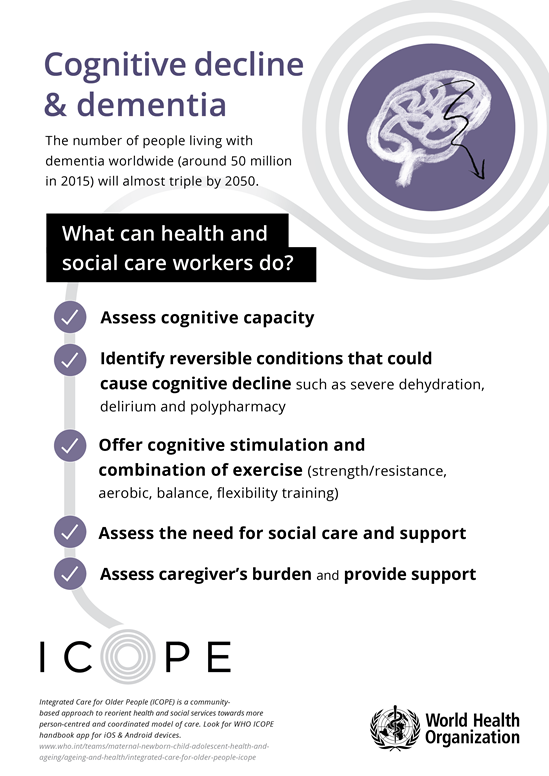Integrated care for older people approach (ICOPE)
When we age, numerous physiological changes occur and the risks of experiencing declines in physical and mental capacities (intrinsic capacity) and having more than one condition (disease) increase. They manifest as cognitive decline, limited mobility, hearing loss, malnutrition, vison impairment, depressive symptoms, urinary incontinence and falls.
Integrated care for older people approach (ICOPE) is WHO’s approach to provide a continuum of integrated care that helps to reorient health and social services towards more person-centred and coordinated care. ICOPE supports optimizing intrinsic capacity and functional ability in older age.
Implementing ICOPE as a part of Universal Health Coverage is one of the action areas of UN Decade of Healthy Ageing (2021-2030).
WHO Guidelines to support healthy ageing
Guidelines on community-level interventions to manage declines in intrinsic capacity (2017)
Health and care workers in the community need support on how to identify
health and social care needs of older people and effectively address them. The
ICOPE Guideline provides recommendations based on the best available evidence
on what works to prevent, or slow declines in the physical and mental
capacities of older people, manage urinary incontinence, prevent falls and
support carers.
Guideline for non-surgical management of chronic primary low back pain in adults in primary and community care settings (2023)
This guideline is to provide evidence-based recommendations on nonsurgical interventions for chronic primary low back pain (CPLBP) in adults, including older people, that can be delivered in primary and community care settings to improve CPLBP-related health and well-being outcomes.
ICOPE implementation resources
NEW ICOPE Handbook 2nd ed. (2024)
The ICOPE handbook 2nd edition supports health and care workers to put evidence- based recommendations into practice in primary care including community. The handbook describes practical care pathways to be adapted for the local context to detect declines in intrinsic capacity, identify social care and support needs, and develop a personalised care plan.
The first edition of the handbook is found here ( Link)
ICOPE Handbook App (2019)
The ICOPE Handbook App, based on the first edition of ICOPE handbook helps implement ICOPE in primary care including community by providing an interactive step-by-step approach following the care pathways The App also generates a printable summary of the resulting assessments, interventions, and a care plan.
Download the App
ICOPE Training Material (2025)
Training material is available in English, building on the second edition of ICOPE handbook as a draft for in-field testing to support the capacity building of health and care workers in the primary care setting to deliver integrated care for older people.
ICOPE Implementation Framework (2019)
The ICOPE Implementation Framework provides guidance for policy makers and programme managers to assess the readiness of services and systems to deliver integrated care in primary care including community.
It provides a score card to help assess the overall capacity of existing health and social care services and systems to deliver integrated care and support the development of action plans for ICOPE implementation.
ICOPE implementation pilot programme (2022)
The objective of this pilot programme is to support implementation of ICOPE in different context towards universal health coverage by showing the survey results with case studies.
Self-care and self-management
Support for self-care and self-management involves providing older people and their carer(s) with the information, skills and tools they need to promote their health and wellbeing, reduce risk factors, manage their diseases, prevent complications, maximize their intrinsic capacity and maintain their functional ability.
The WHO Mobile Health for Ageing (mAgeing) handbook (2018)
The mAgeing handbook helps countries develop a programme for delivering health information, advice, and reminders based on the ICOPE guidelines through basic technology common to most mobile phones. The mAgeing programme can supplement routine care offered by health and care workers.
Indicators related to WHO's ICOPE
Monitoring and evaluation are critical to allocate resource efficiently and scale up ICOPE.
The data portal provides data on indicators related to WHO’s Integrated care for older people approach (ICOPE), such as prevalence of hearing loss, vision impairment, low back pain, and the incidence rate of falls.
Related links on Healthy ageing
Media center
Related activity
Related health topic
Contact us

